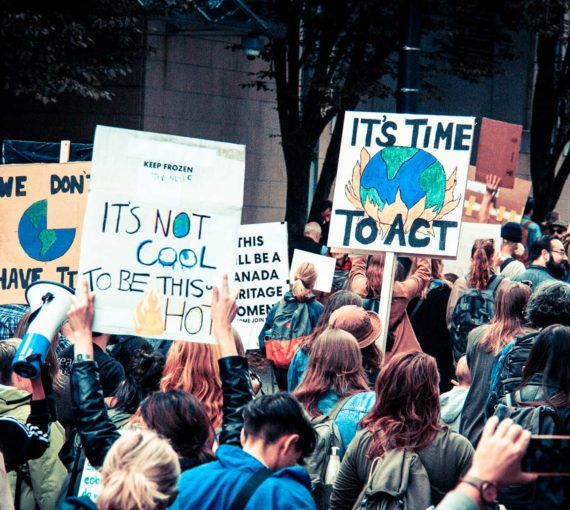
Along with feelings of grief and fear about climate change, there are reasons for hoping that Canada can ramp up its climate ambition to help the critical global mission to limit warming to maintain a livable climate.
Advocating for climate action can be discouraging and demoralizing. Grief, fear and injustice are woven into the harsh reality of a changing climate. It’s real, and we’re not here to dismiss it with toxic positivity.
But there are good reasons to hope that we can increase Canada’s climate ambition and get on track to doing our fair share in the global effort to prevent climate catastrophe.
Ten promising developments in the climate justice movement
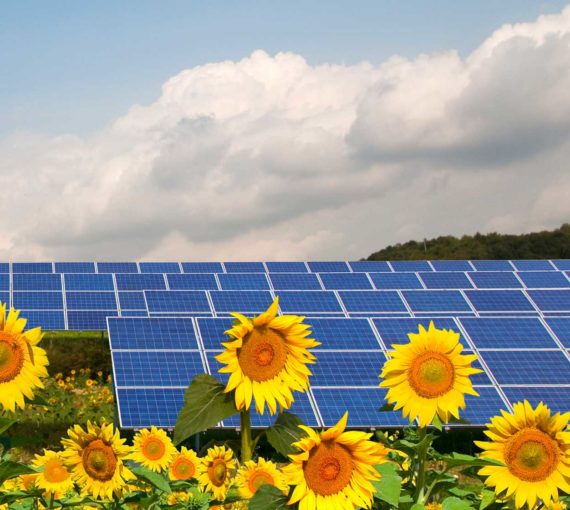
1. Canada can have 100 per cent clean electricity by 2035
Our Clean Power Pathways modelling research — the first of its kind in Canada — shows this country can achieve 100 per cent zero emissions (not just net-zero) electricity in just 13 years.
Our report, “Shifting Power: Zero-Emissions Electricity Across Canada by 2035,” shows how to affordably and quickly shift from fossil fuels to reliable emissions-free electricity.
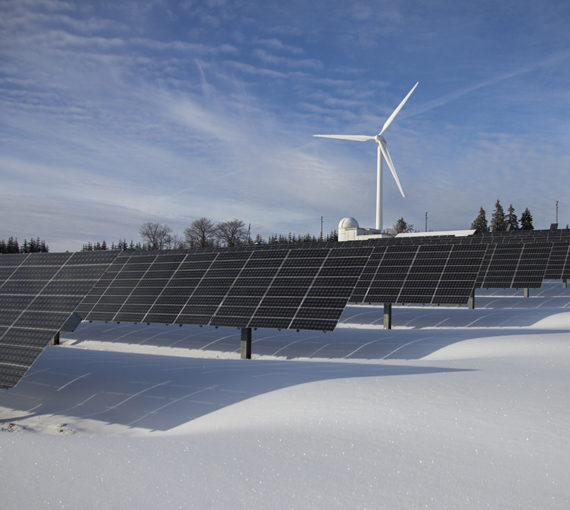
2. The cost of renewables and energy storage is dropping rapidly
Lower costs will propel mass adoption of renewables and make them available for many people
- Renewables were the world’s cheapest source of energy in 2020.
- The cost of energy storage has dropped by more than 90 per cent over the past 10 years.
With their abundance of sun and wind, Canada’s Prairie provinces — especially southern Saskatchewan and southeast Alberta — could soon be clean energy superpowers.
Renewable electricity is reliable, affordable and good for jobs and climate.

3. Public opinion is on our side. Canadians want bold climate action
Remember September, 2019, when millions worldwide marched for climate action, including record- breaking crowds in Canadian cites?
COVID-19 put a chill on in-person rallies, but the urgency and importance of addressing climate change powers on. Many public opinion polls confirm that the vast majority of people in Canada are concerned about climate change and want to see action.
Tens of thousands of people have taken climate action this year with the David Suzuki Foundation alone. Around the world, people like you are demanding action to protect their future.
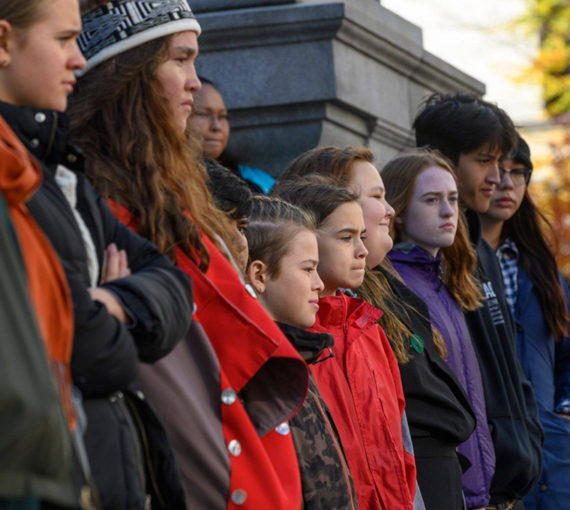
4. The kids are all right. The youth climate movement is not backing down
Greta Thunberg gained worldwide attention for her climate activism, but she wasn’t the first or only youth climate advocate. Canada has its own young, inspiring climate leaders who are finding new ways to push for climate justice, fight for their future and find community and sense of purpose through their efforts.
Some young people are taking time off from study to focus on activism — we call them “gaptivists.” And this year, our Future Ground Prize focused on youth leaders from elementary school through university. Young people were also part of the jury.
By no means should we let young activists do all the work. Instead, we can lift them up, support their court cases, share their stories, hear their calls to action and follow their lead.
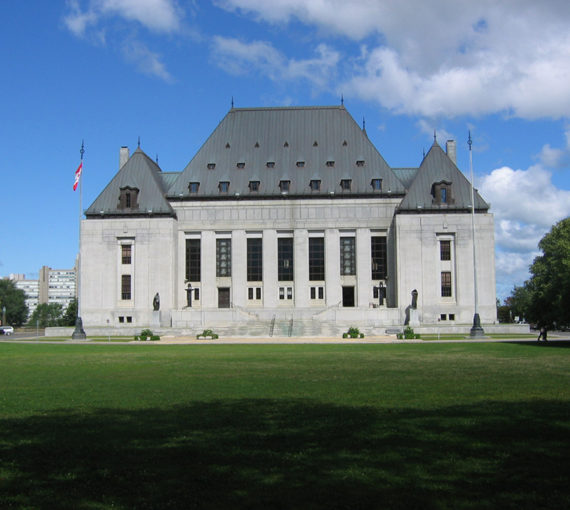
5. The Supreme Court affirmed that climate change is an emergency
In a recent ruling, Canada’s Supreme Court affirmed that “climate change is a threat of the highest order to the country, and indeed to the world.” The ruling recognizes that “a provincial failure to act directly threatens Canada as a whole.” It confirmed that the federal government has the authority to move ahead throughout the country to address the climate emergency.

6. Indigenous communities are taking energy and climate issues into their own hands
Indigenous Peoples are leading on climate. Brave land and water defenders have long been on the front lines of the climate movement, protecting their traditional territories from fossil fuel expansion.
Many Indigenous communities are also championing their own transition to renewable energy in unique, creative and culturally appropriate ways.
Indigenous Climate Action is “reinforcing their place as leaders in climate change discourse and driving solutions for today and tomorrow.” APTN’s TV series Power to the People explores the Indigenous renewable energy revolution. Both provide optimism and hope and deserve respect and gratitude.
Our report, “Decarbonizing Electricity and Decolonizing Power: Voices, Insights and Priorities from Indigenous Clean Energy Leaders,” sets out six principles for upholding Indigenous rights and ensuring Indigenous communities benefit from a transition to emissions-free electricity.

7. Cities and towns are demonstrating leadership in climate action
Throughout the country, cities and towns are declaring climate emergencies and bringing in ambitious climate plans. Municipalities can legislate actions that affect about 45 per cent of our national emissions. By regulating land use, encouraging building retrofits and energy efficiency, enabling electric vehicle charging and active transportation and introducing road pricing and carbon budgets, cities like Vancouver, Edmonton, Halifax and Montreal are tackling the climate crisis while creating livable and healthy urban spaces.

8. The U.S. has stepped up its ambition and is normalizing bold action
In 2019, when U.S. Rep. Alexandria Ocasio-Cortez tried to get legislation passed for a Green New Deal, the climate and social justice goals and policies contained in it were widely seen to be radical and extreme. Now, President Joe Biden is rolling out some of these very same policies and committing to the deal’s goals and ambitions.
They may call it the Inflation Reduction Act, but the U.S. government’s new bill is being hailed as one of the most significant climate investments the country has made. “The newly minted law contains $369 billion in funding for clean energy and electric vehicle tax breaks, domestic manufacturing of batteries and solar panels, and pollution reduction,” Vox notes.
Because the U.S. is Canada’s largest trade partner, its climate action will propel us forward with our own.
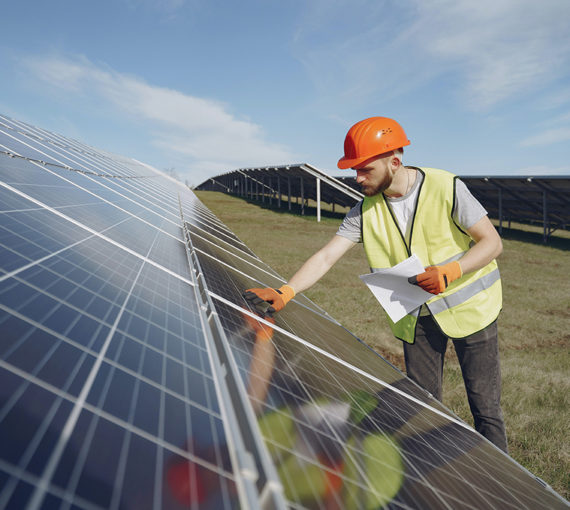
9. Climate action creates millions of jobs — and everyone wants jobs
Decarbonizing Canada’s economy is no small feat. It will require significant work in retrofits for energy efficiency, renewable energy, transportation and technological innovation. This will create millions of well- paying, long-term, sustainable jobs in communities throughout the country.
Our groundbreaking report about Canada’s quick path to clean power says the ambitious shift to clean electricity would also create at least 75,000 jobs a year in construction, operation and maintenance of new wind, solar and transmission lines alone.
For workers and communities affected by the decrease in employment in the fossil fuel industry, we need to ensure a just transition that provides the training and support necessary as this industry winds down. It’s important to consider that fossil fuel jobs are already on the decline and now represent less than one per cent of the Canadian workforce, and for every job lost in fossil fuels over the past six years, the Canadian economy created 42 jobs.
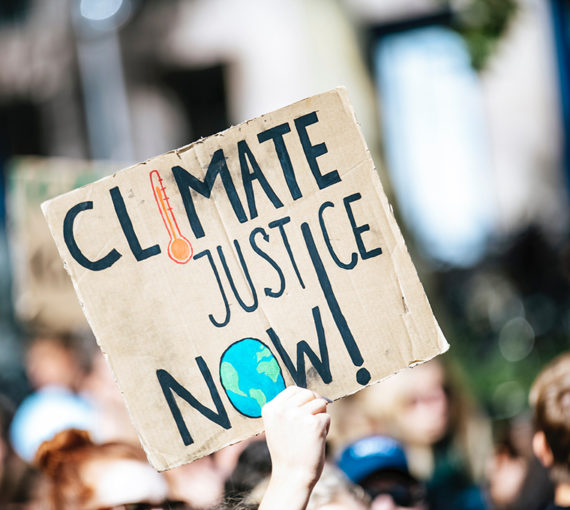
10. Centering equity in climate action will help address systemic causes and interconnected injustices
The term climate justice is becoming more commonplace as people increasingly recognize that climate change is not just an environmental problem; it’s a social, moral and equity problem as well. Historically marginalized people such as Indigenous people, people of colour and people living in poverty contribute the least to the problem but suffer the most from the impacts of climate disruption. Coming to terms with this reality is big step toward addressing the systemic causes of climate change.
Canadians are asking for climate action that decreases these inequities and creates more stable jobs, healthier communities and a more just society that brings everyone along.
Canada’s progress on climate change continues to be dangerously slow. We have not set a target ambitious enough to do our fair share to address the climate crisis. Over the past decade, Canada was the only country in the G7 whose emissions continued to climb. Even as our climate ambition increases, we continue to invest in expanding oil and gas infrastructure rather than managing the industry’s inevitable and necessary decline.
Our collective call for urgent, bold and ambitious climate action is essential. The reasons for hope outlined here indicate to us that the opportunity is here to finally start driving down emissions and begin the transition to a clean, just and renewable future.

